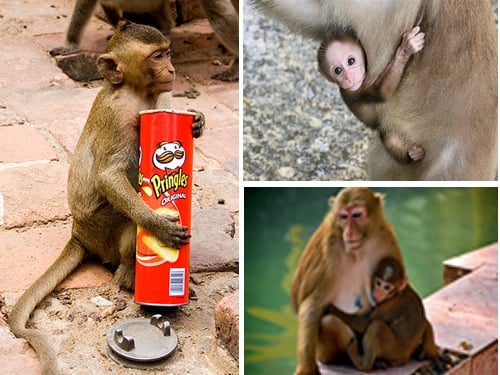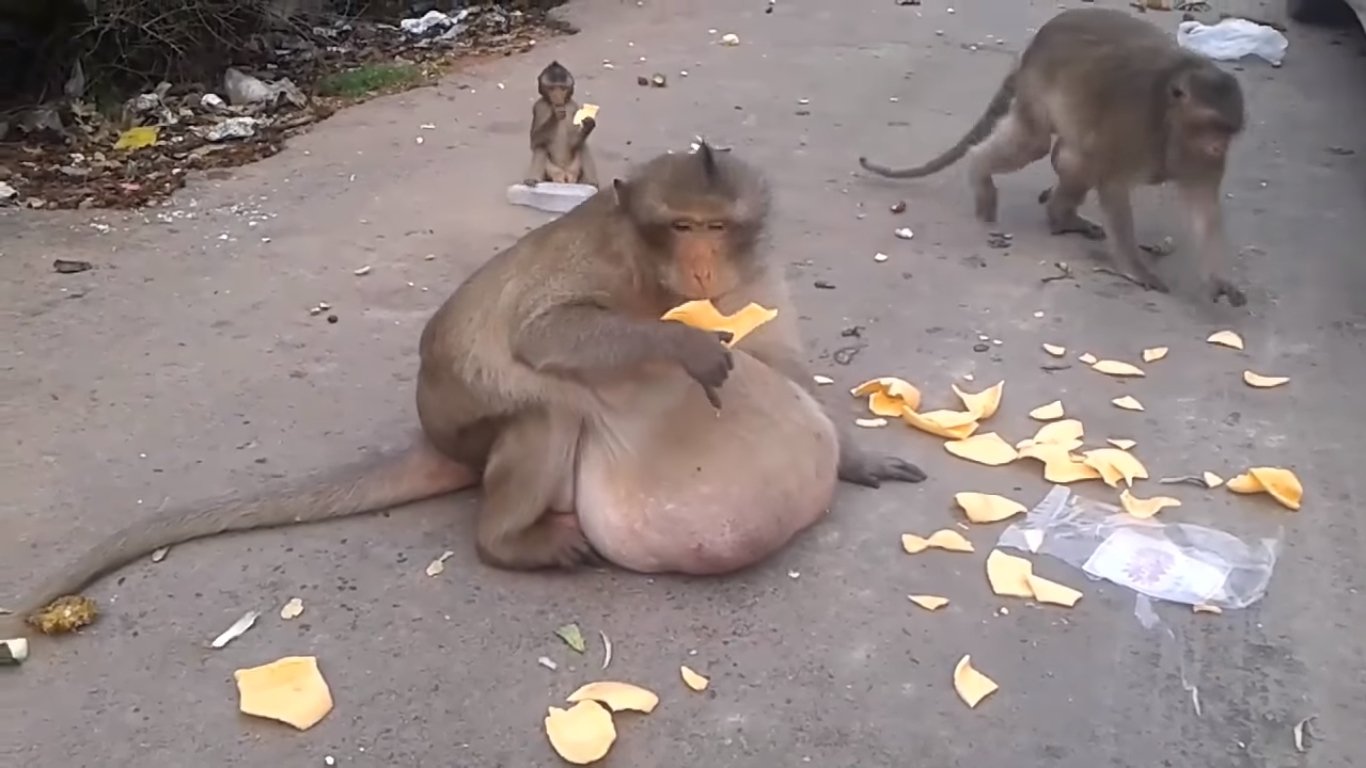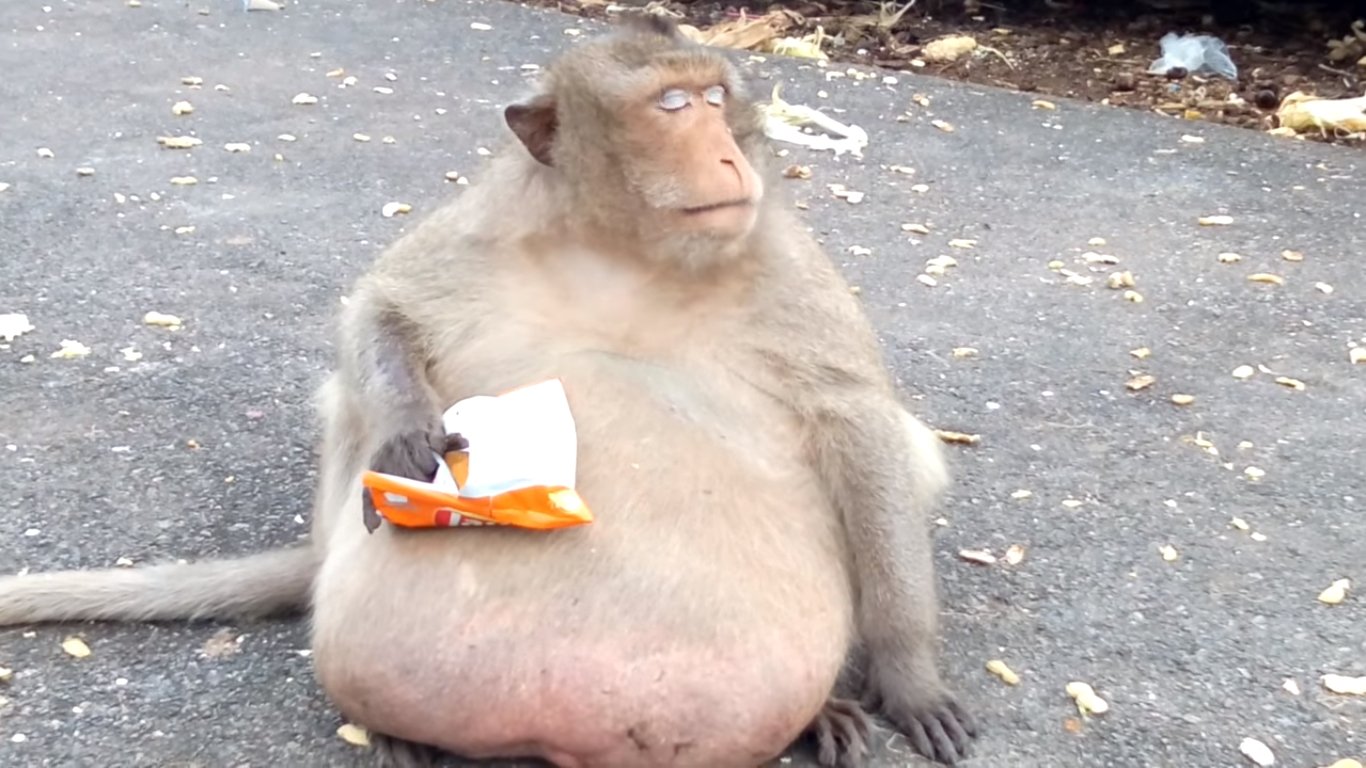
Thailand’s free-roaming monkeys are a huge tourist draw. The primates, mostly macaques, are known to boldly visit with tourists who lure them with food. One of these monkeys, in particular, has recently become a worldwide sensation for both his gargantuan size and unique social status among his peers.
Nicknamed Uncle Fat, by the locals, the macaque is often seen seeking handouts of junk food and soda from visitors or foraging through trash cans for leftovers. Uncle Fat also has an entourage of smaller primates that deliver him food on a regular basis. Though the monkey does share some of the bounty with younger macaques, he eats more than his fair share. While the macaque’s unhealthy eating habits that have been shared extensively on social media have been amusing to humans, they are proving dangerous for the monkey. A true “chunky monkey,” Uncle Fat now weighs 26 kgs (60 lbs) or about three times the size of an average adult macaque.

Fearing for the animal’s health, on April 27, primate conservation group Monkey Lovers captured the mammal from Bangkok suburb he frequented daily and brought him to a rehabilitation center in the city. Kacha Phukem, who was commissioned to take him in, says it was no easy task given that he had to fight off several monkey “bodyguards” to get to Uncle Fat.

The rotund monkey is now on a strict diet of fruits and vegetables. According to the center’s veterinarian, Supakarn Kaewchot, the excess fat gained from eating the unhealthy food has formed a mass that is now a type of benign tumor and put the monkey at a high risk of contracting heart disease and diabetes. While the officials plan on releasing Uncle Fat once he’s healthy, they hope the macaque does not revert to his old eating habits.

More importantly, Kaewchot wants visitors to realize the dire consequences of feeding the mammals human snacks and drinks. In addition to being harmful, the intelligent animals are becoming so dependent on the handouts that they are no longer able or willing to find food on their own. While the best solution is to place a ban on feeding them all together, that is unlikely given the tourism business the monkeys earn for Thailand. Hopefully, this overly plump animal’s internet popularity will encourage visitors to offer the macaques healthier fare like bananas and peanuts.
Resources: guardian.com, npr.org, news.yahoo.com